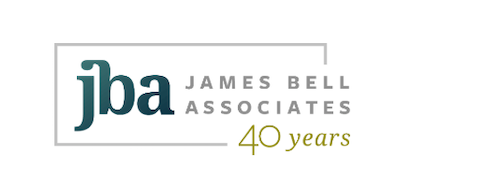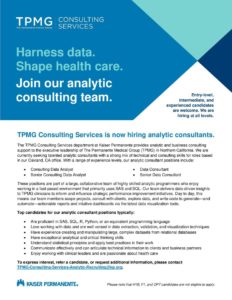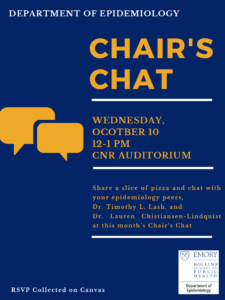The Task Force for Global Health is offering a fellowship opportunity to a Hilton Prize Coalition (HPC) Fellow starting in September 2019 for a minimum of three months part-time.
The HPC Fellow will have an opportunity to:
• Work as part of an ongoing Task Force program
• Become acquainted with TEPHINET’s operations and strategic work areas
• Interact with technical experts in field epidemiology and learning, and public health leaders
• Become familiar with working with coalitions and collaborative concepts
• Assist in advancing a new priority work area for the program
• Otherwise contribute to strengthen technical capacity at TEPHINET
TASK FORCE BACKGROUND:
The Task Force for Global Health is an Emory University affiliate located in Decatur, GA. Its programs focus on building robust public health systems that serve all people. Program areas include neglected tropical diseases, vaccines, and health systems strengthening. The Task Force for Global Health was recognized for its extraordinary contributions to alleviating human suffering with the 2016 Conrad N. Hilton Humanitarian Prize, the world’s largest award of its kind. The Task Force is ranked among the largest nonprofits in the United States due to in-kind contributions of medicines and vaccines from major pharmaceutical companies valued at billions of dollars annually.
TEPHINET BACKGROUND:
Training Programs in Epidemiology & Public Health Interventions Network (TEPHINET) is a global network of field epidemiology training programs (FETPs) founded in June 1997 with support from the World Health Organization (WHO), Centers for Disease Control and Prevention (CDC), and the Foundation Merieux. With a secretariat based in Atlanta, Georgia, USA, TEPHINET is the only global network of field epidemiology training programs, spanning multiple regional networks, sub-regional programs, and national programs around the world. Overall, TEPHINET comprises 71 programs in more than 100 countries. Currently, there are more than 12,000 FETP graduates around the world. For more information, visit TEPHINET’s website: https://www.tephinet.org/.
PROJECT:
The HPC Fellow will support TEPHINET in creating and implementing a continuous learning strategy as it relates to their mission goals. TEPHINET’s vision for the learning strategy is to:
1. Create a robust and sustainable learning platform able to host educational resources and training materials relevant to the global FETP community 2. Strengthen TEPHINET’s learning support, coordination, and interaction role to amplify the effectiveness of field epidemiologists within the network 3. Generate both internal and external (e.g., academic and research institutions) opportunities for collaboration and knowledge exchange
FELLOW ACTIVITIES AND OPPORTUNITIES:
The HPC Fellow will focus primarily on supporting technical aspects of TEPHINET as it pertains to two of its strategic work areas: continuous learning and knowledge exchange. These include:
• Convening meetings of technical experts to discuss current learning gaps and emergent needs and compiling inputs for inclusion into a draft strategy document
• Performing targeted collaborative strategic activities with knowledge exchange and learning teams
The fellow will primarily be supporting TEPHINET learning activities, such as, but not limited to:
• FETP Learning Advisory Council coordination and development activities
• Learning Strategy creation and validation
• Other priority learning activities that result from the above two tasks
This position will focus primarily on supporting continued implementation of Objectives 1 and 2, and to a lesser degree Objectives 3 and 4, from the TEPHINET Learning Strategy Development and Implementation initiative:
• Objective 1: Formalize the creation of a network-wide learning advisory board
▪ Update working agenda and coordinate activities
▪ Identification of a larger network of learning focal points from key stakeholder groups, for support to this board and initiative, as needed
• Objective 2: TEPHINET Learning Strategy is finalized and validated by the learning advisory board (FLAC), FETP Program Directors, and other key stakeholders Activities:
▪ Begin organizing components of draft strategy from meeting inputs and outputs
• Liaison with a strategy development SME contractor to have a first draft of the strategy ready for presentation to the Program Directors in late October 2019
▪ Coordinate formation and convening of functional sub-working groups as identified, whose aim is to develop criteria and action plans for key components of the strategy and its implementation
• Objective 3: By 31 August 2020, select new Learning Management System (LMS) for the TEPHINET Secretariat to manage and share with the global network.
▪ Assist with planning of Sub-Objective 3.1 tasks – Conduct Collaborative Requirements Development Methodology (needs assessment for business processes and technology requirements)
• Objective 4: Starting in May 2020 through 31 August 2020, begin dissemination and implementation of TEPHINET Continuous Learning Strategy (TEPHINET will be concurrently working on some priority activities while developing the strategy.)
▪ As identified by the FLAC, assist in coordination and drafting of action plans for key activities such as: (continued) development, use and maintenance of technology platforms and tools; creation of collaboration and knowledge sharing tools/spaces for FETP curriculum standardization, FETP curriculum/course customization and innovations; review of existing learning materials and resources; identification and incorporation of new learning materials for programs and graduates (continuing education, etc), harmonizing between levels (national, regional, global); and others as determined by the strategy
OTHER RESPONSIBILITIES:
• Participates fully as a member of the Task Force for Global Health and TEPHINET by contributing, assisting and participating in projects, activities, and initiatives as requested by management.
• Complete a Disaster Ready training administered by Hilton.
The fellowship will provide compensation to the fellow in the form of a $5,000 stipend paid on a bi-weekly basis.
APPLICATION REQUIREMENTS:
Fellowship applicants should meet the following qualifications:
• Be enrolled in a master’s degree program in public health with a focus in epidemiology, global health, or a learning-focused degree or concentration OR have demonstrable experience (2-5 years or 5+ years) with learning related initiatives, ideally learning activity cycle beginning to end (design to evaluation) and/or strategy development and action planning
• Experience with development/management of virtual collaboration technology tools
• Be familiar with data management, survey development and basic data analysis
• Have an interest in strengthening public health capacity
THE APPLICATION SHOULD INCLUDE THE FOLLOWING MATERIALS:
• A cover letter stating the applicant’s area of interest in public health that includes an overview or summary of related projects, experiences, or publications produced by the applicant (maximum one page)
To apply, click HERE.











Recent Comments